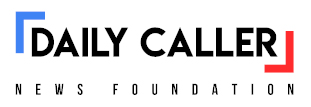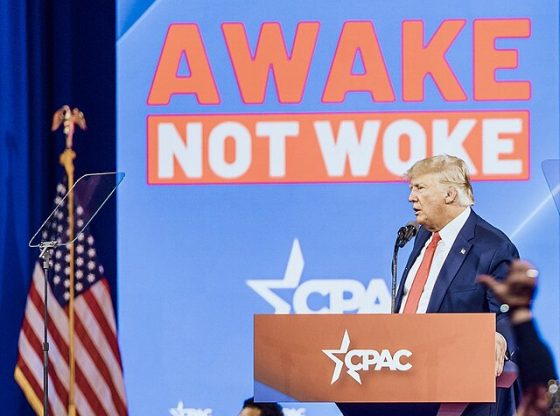It was a warning shot that went unheeded, and now it is costing major corporations dearly. Following a last year’s Supreme Court decision on affirmative action in higher education, 13 Republican state attorneys general fired off a letter to Fortune 100 companies questioning their similar corporate policies. Now, many companies wish they had paid closer attention.
In the past few months, conservative activist Robby Starbuck’s social media campaign has swept through major corporations wreaking so much havoc that companies have begun folding to his demands before they are even targeted. The result? Damaged market capitalizations, tarnished reputations, and ire and frustration from consumers and activists on both the Left and Right. Welcome to the latest manifestation of our post-Bud Light era in which every company remains a Target.
Starbucks’ campaign and the attorneys general’s scrutiny that preceded it are part of the growing right-wing backlash to corporate America’s post-George Floyd embrace of Diversity, Equity, and Inclusion (DEI) practices. It is just one area in which companies are finding it hard to avoid political pressures in today’s stakeholder economy. Here’s what public affairs professionals need to know to help their companies navigate the increasingly heated culture wars of our tribal era.
The Summer DEI Turned Ugly
Leading this charge is conservative activist Robby Starbuck, whose campaigns against corporate DEI efforts have forced several major companies to quietly retreat. He led a full-blown digital assault against Harley-Davidson, leveraging his social media reach to accuse the company of straying from its core, blue-collar values. Harley-Davidson caved, dialing back its diversity programs. Next in line was John Deere, the agricultural giant known for embodying rural America. Starbuck’s campaign amassed millions of views, and the company retreated on its DEI initiatives. Seeing the wreckage, Molson Coors, Ford, and Lowe’s preemptively reduced their diversity efforts to avoid Starbuck’s crosshairs.
These aren’t isolated incidents. What started as a weak signal—the occasional conservative critique—has now turned into a full-fledged backlash. Tractor Supply, for instance, initially embraced DEI as part of a broader modernization strategy, but scaled back its efforts after being targeted by one of Starbuck’s campaigns. The retreat wasn’t driven by internal concerns over DEI’s effectiveness but by external pressures. Starbuck’s use of social media, dripping out just enough content over time to keep the pressure rising, has been a devastatingly effective strategy leaving companies from every sector fearing that staying the DEI course could cost them dearly.
Companies’ Complicated Embrace of DEI
Companies first leaned into DEI as a response to a profound cultural shift. The killing of George Floyd galvanized a movement for racial justice, and businesses, driven by both moral imperatives and strategic necessity, integrated DEI into their operations. Companies like Harley-Davidson, Nike, and John Deere were among the most visible in championing these efforts, aligning their brands with social progress and gaining public praise in the process.
What many of these organizations failed to foresee was the emergence of a powerful counter-narrative. On the surface, DEI seemed apolitical — focused on long-overdue fairness, inclusion, and representation. However, to conservative critics like Robby Starbuck, these initiatives represented a broader ideological shift that encroached on corporate neutrality. Companies that embraced DEI became vulnerable to accusations of wading too far into progressive politics, opening themselves to opposing pressure campaigns that can significantly damage their reputations and business models.
As we’ve pointed out before, DEI efforts are too often shaped and driven by a broader progressive agenda that itself is not always that inclusive. Plus, for many companies, the embrace of DEI has been more rhetoric than results, with little real progress towards stated goals of elevating under-represented populations in company ranks – particularly at higher levels. That’s left companies stuck between unsatisfied progressives and angry conservatives.
In Politics, Every Action Has An Unequal And Opposite Reaction
Starbuck’s playbook reveals a deeper truth about today’s political dynamics. DEI, which quickly became viewed as a corporate best practice, is now seen by many on the right as synonymous with “wokeness” — a label that carries significant risks in today’s polarized environment. What some companies initially saw as distant concerns have turned into high-pressure reputational crises and many prominent libertarian and conservative voices in the business world are now pushing companies to embrace an alternative: Merit, Excellence, and Intelligence (MEI).
This new reality brings significant legal implications, with lawsuits alleging reverse discrimination on the rise and politicians pushing legislative and enforcement actions. Florida Gov. Ron DeSantis spearheaded efforts to dismantle DEI with the “Stop WOKE Act” in 2022, which restricted how race and gender topics are taught in schools and workplaces. In 2023, he expanded these efforts by defunding DEI programs in higher education, labeling them as political indoctrination. His actions set a precedent for other Republican governors, with states like Texas, North Dakota, and North Carolina advancing similar policies.
In many ways, DEI has become a proxy for larger ideological battles, and companies are increasingly caught in the crossfire. As Starbuck’s campaigns continue to gain traction, businesses that once felt pressure to do more on a range of social issues from the left are now feeling the same sort or pressure from the right — and not all of them understand how they got here or what it means as our cultural warfare continues.
Navigating The Tribal Divide
As the stories of Harley-Davidson, John Deere, and Tractor Supply illustrate, the decision to step back from DEI initiatives isn’t always about rejecting diversity itself but about managing the complex realities of political and reputational risk. Even firms like Nike, a well-known and ardent supporter of progressive social causes, has tempered its public messaging in recent months.
The DEI blowback we’re witnessing today is a reflection of deeper societal divisions, ones that are now playing out across corporate America. Public affairs professionals need to understand this battle isn’t just about DEI—it’s about the role activists and politicians on both sides of the divide expect businesses to play in shaping cultural narratives.
In this new era, companies must navigate an ever-shifting landscape where political and cultural allegiances can determine success or failure. For those in government relations and public affairs, staying attuned to these tribal dynamics will be critical in helping organizations anticipate and manage the next wave of blowback—or hopefully avoid it all together.
Featured Image Credit: Vox España












